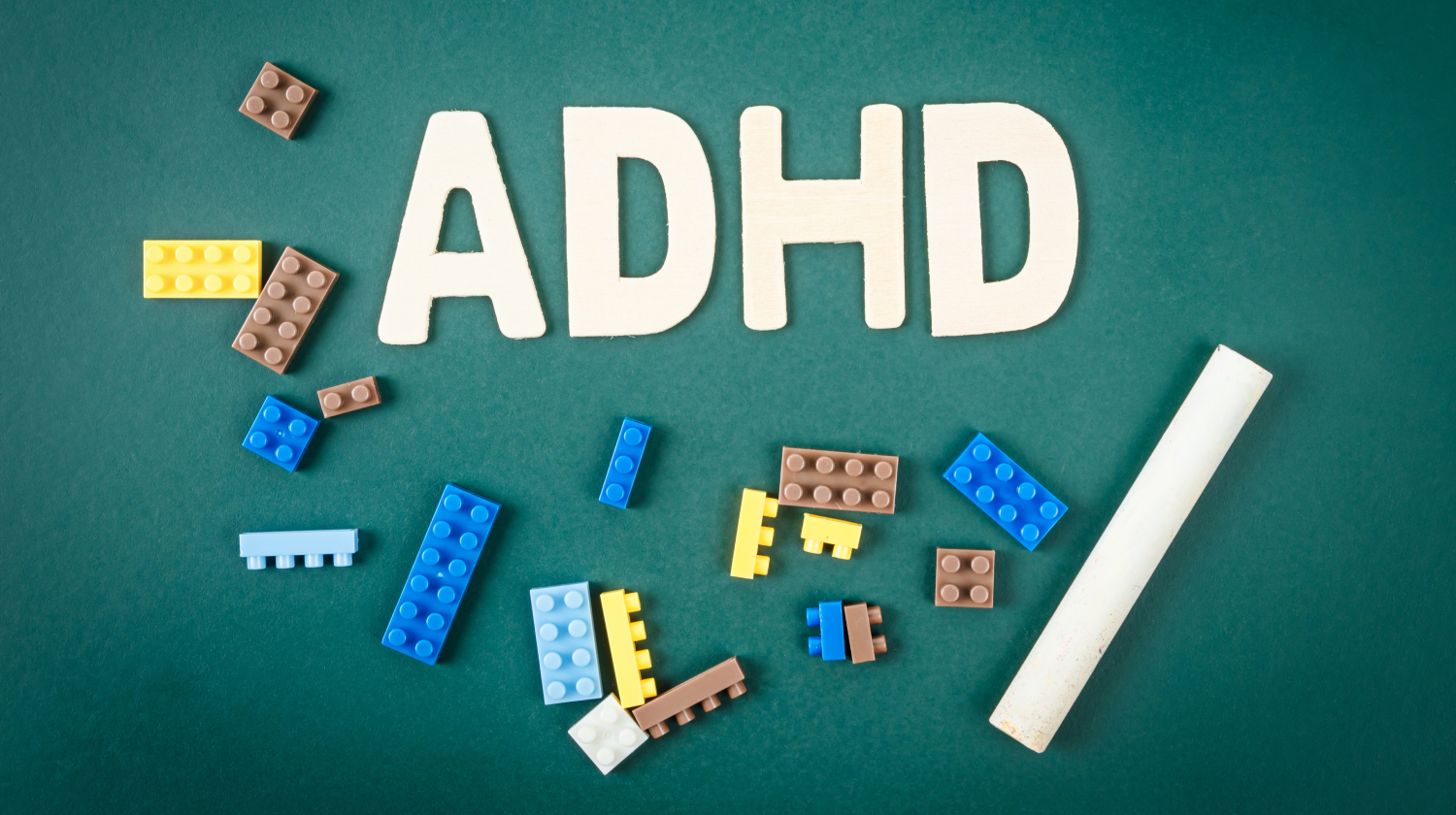High Functioning ADHD: Symptoms, Diagnosis & How To Cope 2024

If you’re an overachiever with moments of hyper-focus but struggle with organization, relationships, and impulsive behavior, you might be one of the 80% of adults with ADHD[1] that aren’t aware they have it.
And with only 5% of adults officially diagnosed, there could be millions[2] more who are missing out on life-changing ADHD treatment.
Fortunately, more and more options are becoming available, and the social stigma is finally starting to lessen.
What Is High-Functioning ADHD?
High-functioning ADHD describes someone with ADHD who blends into society and performs well at varying tasks.
They might not appear to have a neurodevelopmental disorder, but their daily life and thoughts might be challenging internally.
They may have to put in extra effort to manage certain tasks but be highly successful in others. Symptoms include impulsivity, restlessness, impatience, and talking more excessively than others.
There are several possible causes, but symptom management is possible with therapy, healthy lifestyle habits, and medication.
What Is High-Functioning ADHD?
ADHD is a neurodevelopmental disorder with a wide range of symptoms across a spectrum of severity. It’s so complex that it’s impossible to lump all symptoms together, so different types of ADHD have been classified.[3] This includes the impulsive/hyperactive type, the inattentive and distractible type, and finally, the combined type.
But high-functioning ADHD, where you can function well in society and on certain tasks, is not a formal diagnosis. Your mental health professional will still look for the typical ADHD symptoms and classify you as one of the three types.
Still, they may notice specific behaviors that mark you as high-functioning. And once you learn your patterns, you can develop coping tools to manage them.
High-Functioning ADHD Symptoms
While the signs and symptoms vary, these are some common high-functioning ADHD symptoms:[4]
- Impatience.
- Hyperactivity.
- Addictive behaviors.
- Excessive speaking.
- Trouble paying attention.
- Lack of organizational and social skills.
- Difficulty controlling impulsive behaviors.
One noticeable trait of high-functioning ADHD is behaving as if driven by a motor and always on the go. But in our fast-paced society, that’s often seen as a positive thing and overlooked as a potential red flag for an underlying issue.
Subtle Signs Of High-Functioning ADHD
If you recognize some ADHD symptoms but don’t feel severely impaired, you can look for some subtler signs[4] that you’re high-functioning, such as:
- Procrastination.
- Cluttered space.
- Low self-esteem.
- Constant fidgeting.
- Leaving things unfinished.
- Boredom with relationships.
- Spending money recklessly.
- Struggling with time management.
- Constantly feeling overwhelmed or anxious.
- Interrupting others or butting into conversations.
- Blurting out an answer before the question is done.
- Active even during leisure time, such as doing something with your hands like eating, drawing, etc.
Certain symptoms can be mild, others greatly impairing, and others even beneficial in areas like creativity or work where you can hyper-focus. They’re different for everyone and may overlap with other mental health disorder symptoms.
Diagnosing High-Functioning ADHD
Unfortunately, there is no specific high-functioning ADHD test.[4] Adults with high-functioning ADHD may even have learned to manage their severe symptoms so well that they may not appear to be struggling and instead look like an overachiever.
High-functioning ADHD in women is often misdiagnosed,[5] for example, since symptoms appear differently than compared to men, and they often develop coping strategies that mask their symptoms.
Another issue that makes a diagnosis more difficult is that many other issues like sleep disorders, anxiety, depression, and learning disabilities have similar symptoms. It’s also possible to have both high-functioning autism and ADHD[6] in adults, which is characterized by difficulty with social interaction and communication.
Steps To Diagnosing ADHD
These are the steps for diagnosing and evaluating ADHD:[7]
- Use rating scores to ensure the Diagnostic and Statistical Manual of Mental Health Fifth Edition, or DSM-5, criteria have been met.
- Conduct a physical exam and rule out other possible conditions and mental disorders with similar symptoms, such as:
- Anxiety, depression, sleep disorders, autism spectrum disorder, learning, language, or developmental disorders.
- Evaluate children aged 4 to 18 for ADHD if they have academic or behavioral problems.
- Get relevant reports from the child, parents, school staff, and any other adults involved with their care.
If you suspect ADHD, it’s best to consult your healthcare provider and get a referral for a psychologist or psychiatrist to confirm the diagnosis.
What Are The Causes?
The majority of research shows that there’s no single risk factor that causes ADHD.[8] Some of the possible overlapping causes include:
- Genetics.
- Brain injury.
- Low birth weight.
- Premature delivery.
- Extreme early adversity.
- Exposure to lead during pregnancy or young age.
- Poor nutrition, alcohol, and tobacco use during pregnancy.
- Neurodevelopmental problems, such as autism spectrum disorders.
- Maternal experience of anxiety, depression, or sleep disorders during pregnancy.
The CDC also points out that contrary to popular belief, most research doesn’t show ADHD to be strongly linked to social and environmental factors.[9] This includes parenting, poverty, family chaos, television, or too much sugar. However, these factors could make symptoms worse.
How To Cope With High-Functioning ADHD
Research suggests that many people with ADHD can succeed[10] in life. They may be able to hyper-focus, become nonconformists, adventurous, and even develop more self-acceptance.
ADHD and intelligence may even go hand in hand for many high-functioning individuals. For example, adults with a high IQ are more likely to develop compensation strategies for any deficits and function well in society.
Therapy

Cognitive-behavioral therapy is the most commonly used form of talk therapy[11] for adults with ADHD. You can learn time management, communication, organizational skills, and emotional coping tools. It can improve your self-esteem, relationships, emotional outbursts, and impulsive behavior. You can even develop skills to focus on reading or other tasks necessary for school or work.
Ultimately, many adults with ADHD learn to use their creativity and ability to multi-task or think fast as a superpower.
Medication

Stimulants are the most common pharmacological treatment for ADHD. About 70%-80% of children[12] with ADHD see an improvement in their symptoms with these medications. Of course, there are side effects to consider, such as decreased appetite and sleeping difficulties.
Healthy Habits

Proper nutrition, exercise, and sleeping habits[13] often go underrated in just how valuable they are for managing ADHD and other disorders. Routines, physical activity to release energy, rest, and nutrients can all help to manage symptoms better.
Caring For Children

As for children and adolescents, the American Academy of Pediatrics has guidelines that follow the principles of caring for a child with special healthcare needs at home.[14] The CDC also recommends creating routines,[15] managing distractions, planning for tasks and events, time-outs, and using goals and rewards frequently.
When Should You See A Doctor?
If any of the symptoms listed above disrupt your life, it’s best to talk to your doctor and mental health professional about ADHD testing.
Specifically, if you’re 17 years old or older and have noticed five or more of the symptoms[16] outlined by the DSM-5, there’s a high chance it’s ADHD.
If you suspect your child might have ADHD, the American Academy of Pediatrics[17] recommends that you also ask their teachers and any other adults who care for them about their behavior when you’re not present. Children need to have six or more of the symptoms listed to be diagnosed, but even if you’ve only noticed a few of the symptoms, it’s still recommended to contact your doctor.
Final Thought
High-functioning ADHD may be more prevalent in our society than previously thought. If you’ve noticed any of the symptoms, like hyperactivity, little patience, excessive speaking, and impulsive behaviors, it’s best to speak with a psychologist.
Some people experience mild symptoms and can still become professionally successful adults thanks to compensation strategies. That could mean taking advantage of positive aspects like hyper-focusing on work and developing coping skills for other impairing symptoms, like a lack of organizational skills.
You can try online therapy for a professional opinion if you’ve noticed any symptoms. But overall, it’s tricky to diagnose ADHD since many of the symptoms overlap with other mental health disorders. Luckily, a stable lifestyle is possible with therapy, healthy habits, and medication management.
+ 17 sources
Health Canal avoids using tertiary references. We have strict sourcing guidelines and rely on peer-reviewed studies, academic researches from medical associations and institutions. To ensure the accuracy of articles in Health Canal, you can read more about the editorial process here
- Ginsberg, Y., Quintero, J., Anand, E., Casillas, M. and Upadhyaya, H.P. (2014). Underdiagnosis of Attention-Deficit/Hyperactivity Disorder in Adult Patients. The Primary Care Companion For CNS Disorders, [online] 16(3). doi:https://doi.org/10.4088/pcc.13r01600.
- U.S. Census Bureau (2022). Population Under Age 18 Declined Last Decade. [online] Census.gov. Available at: https://www.census.gov/library/stories/2021/08/united-states-adult-population-grew-faster-than-nations-total-population-from-2010-to-2020.html.
- Hopkinsmedicine.org. (2023). Attention-Deficit / Hyperactivity Disorder (ADHD) in Children. [online] Available at: https://www.hopkinsmedicine.org/health/conditions-and-diseases/adhdadd
- CDC (2022). Symptoms and Diagnosis of ADHD. [online] Centers for Disease Control and Prevention. Available at: https://www.cdc.gov/ncbddd/adhd/diagnosis.html
- Quinn, P.O. and Madhoo, M. (2014). A Review of Attention-Deficit/Hyperactivity Disorder in Women and Girls. The Primary Care Companion For CNS Disorders, [online] 16(3). doi:https://doi.org/10.4088/pcc.13r01596.
- Pehlivanidis, A., Papanikolaou, K., Korobili, K., Kalantzi, E., Mantas, V., Pappa, D. and Papageorgiou, C. (2020). Trait-Based Dimensions Discriminating Adults with Attention Deficit Hyperactivity Disorder (ADHD), Autism Spectrum Disorder (ASD) and, Co-occurring ADHD/ASD. Brain Sciences, [online] 11(1), p.18. doi:https://doi.org/10.3390/brainsci11010018.
- CDC (2020). ADHD Treatment Recommendations. [online] Centers for Disease Control and Prevention. Available at: https://www.cdc.gov/ncbddd/adhd/guidelines.html
- Núñez-Jaramillo, L., Herrera-Solís, A. and Herrera-Morales, W.V. (2021). ADHD: Reviewing the Causes and Evaluating Solutions. Journal of Personalized Medicine, [online] 11(3), p.166. doi:https://doi.org/10.3390/jpm11030166.
- CDC (2021). What is ADHD? [online] Centers for Disease Control and Prevention. Available at: https://www.cdc.gov/ncbddd/adhd/facts.html#SignsSymptoms
- Sedgwick, J.A., Merwood, A. and Asherson, P. (2018). The positive aspects of attention deficit hyperactivity disorder: a qualitative investigation of successful adults with ADHD. ADHD Attention Deficit and Hyperactivity Disorders, [online] 11(3), pp.241–253. doi:https://doi.org/10.1007/s12402-018-0277-6.
- CHADD (2018). Cognitive-Behavioral Therapy – CHADD. [online] CHADD. Available at: https://chadd.org/for-adults/cognitive-behavioral-therapy/
- CDC (2020). Treatment of ADHD. [online] Centers for Disease Control and Prevention. Available at: https://www.cdc.gov/ncbddd/adhd/treatment.html#medications
- Cleveland Clinic. (2023). Attention-Deficit/Hyperactivity Disorder (ADHD). [online] Available at: https://my.clevelandclinic.org/health/diseases/4784-attention-deficithyperactivity-disorder-adhd
- Ahrq.gov. (2022). Defining the PCMH. [online] Available at: https://www.ahrq.gov/ncepcr/research/care-coordination/pcmh/define.html
- CDC (2020). Treatment of ADHD. [online] Centers for Disease Control and Prevention. Available at: https://www.cdc.gov/ncbddd/adhd/treatment.html#tips
- CDC (2022). Symptoms and Diagnosis of ADHD. [online] Centers for Disease Control and Prevention. Available at: https://www.cdc.gov/ncbddd/adhd/diagnosis.html
- Wolraich, M.L., Hagan, J.F., Allan, C., Chan, E., Davison, D., Earls, M., Evans, S.W., Flinn, S.K., Froehlich, T., Frost, J., Holbrook, J.R., Lehmann, C.U., Lessin, H.R., Okechukwu, K., Pierce, K.L., Winner, J.D. and Zurhellen, W. (2019). Clinical Practice Guideline for the Diagnosis, Evaluation, and Treatment of Attention-Deficit/Hyperactivity Disorder in Children and Adolescents. Pediatrics, [online] 144(4). doi:https://doi.org/10.1542/peds.2019-2528.



